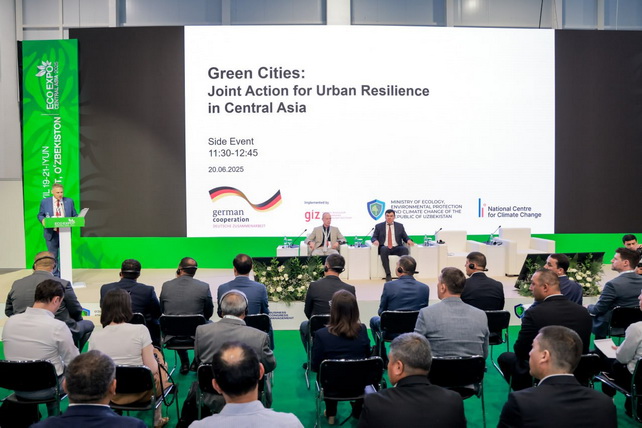
Uzbekistan and Germany Launch Regional Project for Sustainable Urban Development in Central Asia
Uzbekistan and Germany Launch Regional Project for Sustainable Urban Development in Central Asia
Tashkent, Uzbekistan (UzDaily.com) — As part of the international exhibition Eco Expo Central Asia 2025, a side event was held to officially launch the regional project “Sustainable and Climate-Oriented Urban Development in Central Asia.”
This initiative is being implemented with the support of the German Agency for International Cooperation (GIZ) and brings together the efforts of Uzbekistan, Kyrgyzstan, and Tajikistan to promote green and resilient urban environments.
Speaking at the opening ceremony, Aziz Abdukhakimov, Minister of Ecology, Environmental Protection and Climate Change of the Republic of Uzbekistan, emphasized the importance of integrating environmental and climate considerations into urban development strategies:
“Climate-oriented urban development is not merely an environmental agenda. It is the foundation of a sustainable economy, high quality of life, and public health. Particular focus within the project will be given to the cities of the Fergana Valley, where rapid urbanization demands urgent and balanced solutions.”
The minister also noted that the new project fully aligns with the goals and objectives of Eco Expo Central Asia, which emphasizes international partnerships, innovative approaches, and building a sustainable future.
A key moment of the event was the signing of a Memorandum of Understanding between the Ministry of Ecology, Environmental Protection and Climate Change of Uzbekistan and GIZ. The document outlines areas of cooperation in environmental protection, climate change mitigation, and sustainable management of natural resources.
Both parties agreed to coordinate efforts in fulfilling Uzbekistan’s international environmental commitments, support the development of strategic policy frameworks, and ensure access to international climate finance mechanisms.
Special attention will be given to implementing pilot projects in cities of the Fergana Valley — including Fergana, Namangan, Andijan, Margilan, and Kokand — with the active involvement of local authorities, businesses, and civil society.
The project will become part of the broader Green Central Asia initiative, supported by the German government, and will ensure a comprehensive and coordinated approach to sustainable development challenges at the regional level, drawing on the best international practices.